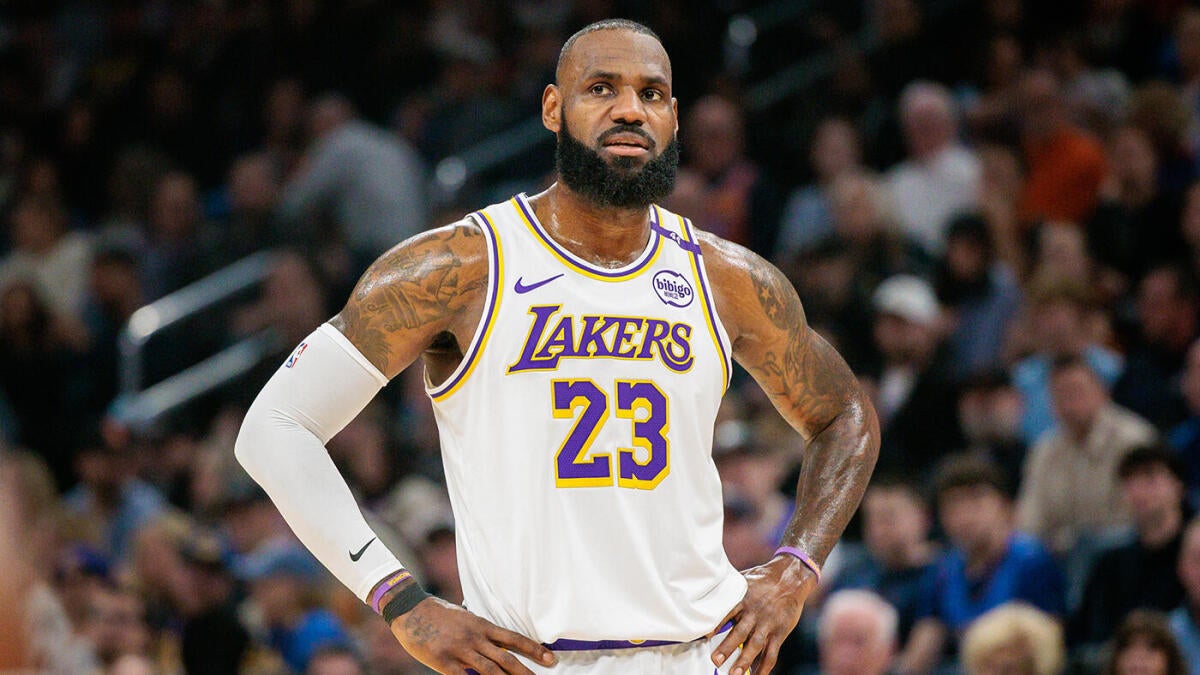The Financial Crossroads of LeBron James and the Lakers
In the high-stakes world of the NBA, few names resonate as powerfully as LeBron James. As the Los Angeles Lakers strategize for the future, the financial implications of LeBron’s potential pay cut have become a central topic of debate. This analysis explores the nuances of LeBron James’ financial decisions, the impact on the Lakers, and the broader context of player salaries in the NBA.
LeBron James’ Financial Strategy
LeBron James has consistently demonstrated a shrewd understanding of the NBA’s financial landscape. Last offseason, he took a strategic pay cut, reducing his salary by approximately $2.7 million. This move was not just about personal gain but about providing the Lakers with the salary cap flexibility needed to build a competitive roster. However, recent insights from The Athletic suggest that LeBron is unlikely to repeat this gesture for the upcoming season.
LeBron’s reluctance to take another pay cut is a significant factor in the Lakers’ financial planning. It limits their ability to attract high-value free agents, forcing the team to explore alternative strategies to improve their roster. LeBron’s decision is a testament to his desire to balance financial security with the pursuit of championships, a delicate act that defines his career.
The Lakers’ Financial Puzzle
The Lakers find themselves in a financial tightrope act, needing to make strategic moves to enhance their roster while staying within salary cap constraints. LeBron’s decision not to take a pay cut complicates these efforts, as the team must now rely on other assets to improve their lineup. This could involve trading existing players, leveraging draft picks, or signing mid-level free agents.
The challenge for the Lakers is to find a harmonious balance between maintaining a competitive team and adhering to financial constraints. This requires a blend of creativity and strategic foresight, ensuring that every move aligns with the team’s long-term goals.
The Complexity of NBA Salaries
The NBA’s salary cap and luxury tax rules are designed to foster competitive balance, but they often create intricate financial scenarios for teams and players. LeBron’s situation is a prime example of how these rules can influence roster management and player decisions. For LeBron, the decision to forgo a pay cut is not just about money; it’s about his legacy and his commitment to winning championships with the Lakers.
In the NBA, players often face the dilemma of choosing between maximizing their earnings and contributing to their team’s success. For LeBron, who has already achieved significant financial success, the decision to take a pay cut is multifaceted, involving considerations of legacy, team dynamics, and personal goals.
The Rise of Player Agency
LeBron’s stance on pay cuts underscores the growing influence of player agency in the NBA. Players like LeBron have the leverage to shape their teams’ financial strategies, influencing roster decisions, salary cap management, and free agency moves. This shift represents a departure from the traditional top-down approach of team management, where general managers and front offices held more control.
The Lakers’ situation highlights the importance of player agency in modern NBA roster management. Teams must now consider not only the financial implications of player salaries but also the players’ willingness to make financial sacrifices for the greater good of the team. This dynamic adds a layer of complexity to roster management, requiring a more collaborative approach between players and management.
Navigating the Offseason
As the Lakers navigate the offseason, the focus will be on how they can improve their roster without relying on LeBron’s pay cut. The team’s success will depend on their ability to make strategic moves and adapt to the evolving financial landscape of the NBA. This could involve trading valuable assets, signing strategic free agents, or developing young talent.
The Lakers’ offseason strategy will be crucial in determining their competitiveness for the upcoming season. The team’s ability to balance financial constraints with the pursuit of championships will be a testament to their strategic acumen and adaptability.
Conclusion
The Path Forward for LeBron and the Lakers
LeBron James’ decision not to consider a significant pay cut presents both challenges and opportunities for the Lakers. The team will need to be innovative in their roster management, leveraging their assets and financial flexibility to build a competitive team. LeBron’s stance on pay cuts reflects his commitment to both his financial security and his legacy as a player.
As the Lakers strategize for the future, the focus will be on how they can improve their roster without relying on LeBron’s pay cut. The team’s success will depend on their ability to make strategic moves and adapt to the evolving financial landscape of the NBA. For LeBron, the decision to forgo a pay cut is a testament to his influence and the complex dynamics of player salaries in the modern NBA. The future of the Lakers hinges on their ability to balance financial constraints with the pursuit of championships, a challenge that LeBron and the team will face together. The journey ahead is fraught with financial intricacies, but with strategic foresight and a shared vision, the Lakers can navigate these waters and emerge stronger, ready to compete at the highest level.

